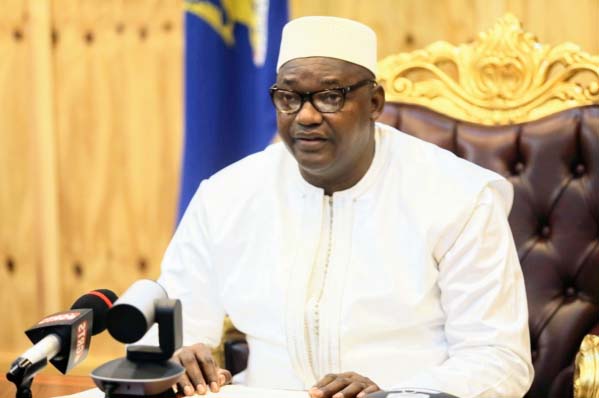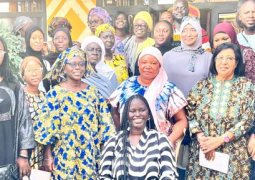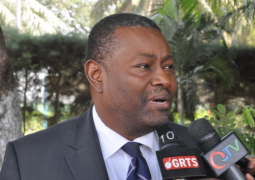
In his traditional Eid Address, President Adama has broken his silence on crime by declaring it regrettable and a threat to national security.
In what many would have expected to be stronger policy pronouncement on increasing crime in the country in recent times, Gambia’s president did not disappoint with his usual soft stance that did not provide any optimism for the population of his government’s resolve to bring an end to this worrying trend of criminal acts.
The Gambian leader, whose Wednesday evening address to the nation was somewhat overshadowed by confusion created by his office’s two-day public holiday even before the country’s Islamic Council announced the Eid, described as “disturbing” the reports of domestic violence and criminal acts of drug abuse, theft, destruction of property and other forms of crimes “in our communities.”
Only a few hours earlier, his government had announced the pardoning of several prisoners, among them dozens of non-Gambians who were to be deported from what used to be most peaceful country in the sub region.
“These crimes pose a threat to peace and stability, and can hamper our development efforts,” the president said in his national address.
“The incident reported in Sanyang is a case in point. It is alarming that Gambian youths can take the law into their own hands to the extent of destroying a police station, looting businesses and displacing law-abiding persons who had amicably integrated themselves into the Gambian community,” he pointed out.
Impacts on the country
According to the President, the impact of the Sanyang incident affected the lives of a whole community: “It dislodged people who had investments in the country and were peacefully earning their livelihoods in the area.”
In the said incident, Senegalese Fisher folks living in the coastal township were attacked by angry mob in retaliation for a death of a youth, allegedly caused by a Senegalese. The incident had other underlying issues of years of discontent and concern to the community members, so the mob targeted a fishmeal factory and set it ablaze, along with the police station there.
That aside, there was another incident which the President said he was aware of - cases of domestic violence, leading to the death of two young persons in one instance. He described these as crimes that “were unknown in the country, such as kidnapping and daylight robbery, are gradually becoming common news headlines.”
Would these have impacts on reparations and reconciliation efforts of the Barrow government through the establishment of a Truth Commission? Barrow is now wondering!
“Yet, the TRRC has been set up for reparation and reconciliation, as reflected in their ‘never again’ slogan,” he said. What wasn’t clear is whether the TRRC mandate was looking at institutional and official crimes of human rights violations and abuses or civilian crimes against each other.
“There are legal ways of expressing our views or taking action against any offence or perceived injustice, and they are meant to be followed,” the president warned.
In the past four years, he said his government consistently promoted freedom and other democratic values that would bring back the people’s smiles in a peaceful and stable environment, which earned the country the name “Smiling Coast of Africa”.
“Unfortunately, some people are taking these values for granted, and are conducting themselves in ways that undermine our security. Disregard for the rule of law is disruptive. As a result, I ask all citizens and residents of the country to act responsibly in order to advance peace and development,” he added.
Read Other Articles In Headlines
Blaxid embarks on road construction to save lives in Nema Jola Kunda
Jun 17, 2021, 11:31 AM




